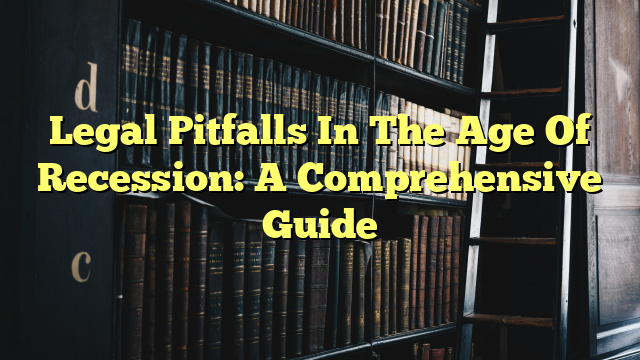Table of Contents
What should you not own in a recession?
In times of economic downturn, there are certain assets that can become liabilities. One should be cautious about owning too much real estate, especially if it is highly leveraged. When property values drop, it can be difficult to sell or refinance properties, leading to financial strain. Additionally, owning stocks in companies that are heavily dependent on consumer spending can be risky, as consumer confidence tends to decline during recessions. It is also advisable to avoid owning high-risk investments, such as speculative ventures or highly leveraged businesses.
What assets are protected during a recession?
While recessions can be financially challenging, there are certain assets that tend to be more resilient. One such asset is cash. Having a sufficient amount of cash on hand can provide a safety net during uncertain times. Other protected assets include government bonds, as they are considered low-risk investments. Precious metals, such as gold and silver, are also often seen as safe havens during economic downturns. Additionally, investments in essential goods and services, such as healthcare or utilities, may be more stable during recessions.
What happens to seniors during a recession?
Seniors can be particularly vulnerable during a recession. Many rely on fixed incomes, such as pensions or social security, which may not keep pace with inflation or increased living costs. Additionally, seniors may face challenges in accessing affordable healthcare and may experience difficulties in finding employment if they need to supplement their income. It is important for seniors to carefully manage their finances, seek assistance if needed, and explore resources available to them, such as government programs or community support services.
Is it good to have cash during a recession?
Having cash during a recession can provide a sense of security and flexibility. Cash allows individuals to cover immediate expenses, pay bills, and meet financial obligations. It can also provide opportunities for investment when prices are low. However, it is important to strike a balance and not hold excessive amounts of cash. Inflation can erode the value of cash over time, so it is advisable to consider diversifying investments and exploring other assets that may provide protection and potential growth during a recession.

